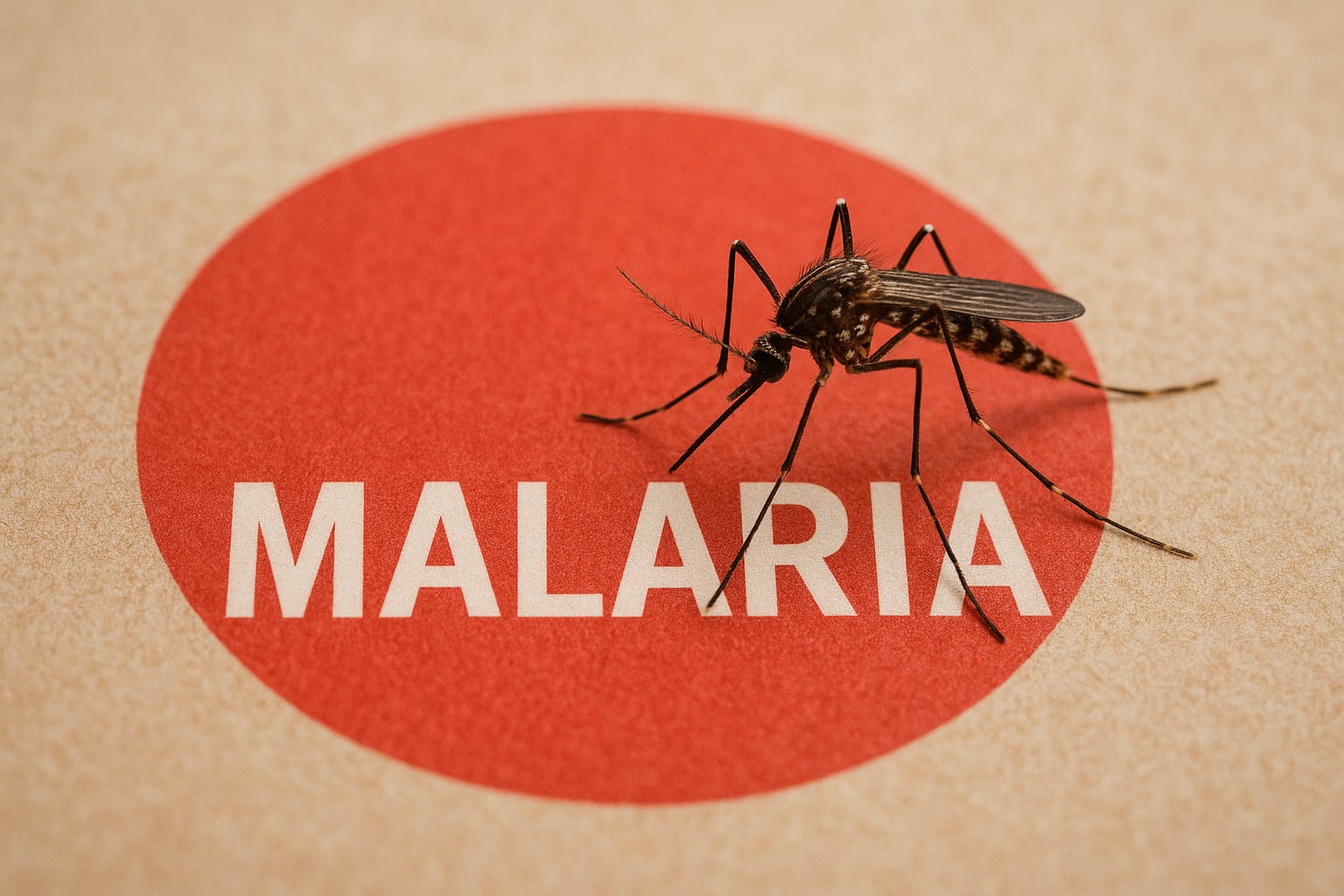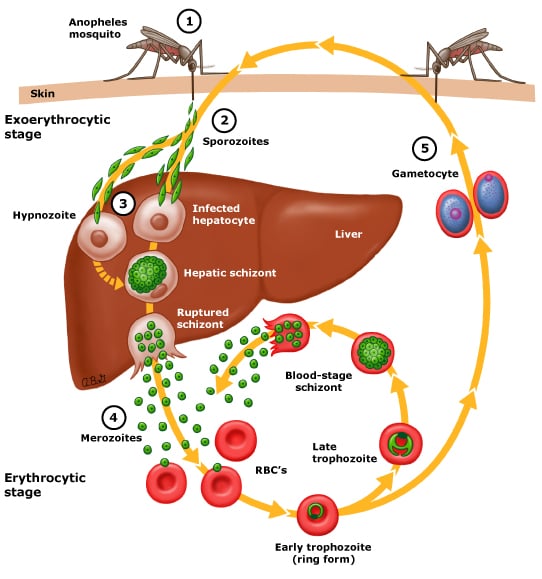
Malaria
Types of species that cause malaria:
- Plasmodium vivax
- Plasmodium ovale
- Plasmodium malariae
- Plasmodium falciparum
What causes malaria?
- The bite of infected Female Anopheles Mosquito transmits the plasmodium species to the human body which led to cause malaria.
High risk individuals for malaria
- Young children
- Pregnant women
- Old age
- International travelers to endemic countries
Symptoms of Malaria:
- Fever
- Vomiting
- Nausea
- Headache
- Myalgia
- Fatigue
- Abdominal pain
- Diarrhea
Clinical findings include:
- Altered Consciousness
- Seizures
- Severe anemia (massive intravascular hemolysis)
- Hypoglycemia
- Respiratory distress or acute respiratory distress syndrome (ARDS)
- Coagulopathy, with or without disseminated intravascular coagulation
- Metabolic acidosis
- Circulatory collapse
- Renal failure, hemoglobinuria (“blackwater fever”)
- Hepatic failure
How does malaria get transmitted?

Following the bite of an infected female Anopheles mosquito, the inoculated sporozoites migrate to the liver within one to two hours. Individuals are generally asymptomatic for 12 to 35 days after infection, but symptoms can commence as early as 7 days (depending on parasite species). Symptoms begin during the erythrocytic stage of the parasite life cycle, when infected red cells rupture and release merozoites, leading to fever and other symptoms.
In most cases, infections due to P. falciparum become clinically apparent within one month after exposure. Longer incubation periods are more likely in semi-immune individuals and individuals taking incompletely effective malaria prophylaxis.
The incubation period for the relapsing species, Plasmodium vivax and Plasmodium ovale, is also about two weeks; however, illness can occur months after initial infection due to activation of residual hypnozoites in the liver. Relapses generally occur within two to three years of infection; with even longer periods of dormancy being reported.
The incubation period for Plasmodium malariae is about 18 days; however, low-grade asymptomatic infections can very rarely persist for years. P. falciparum and P. malariae have no dormant (hypnozoite) phase, hence do not relapse.
Treatment for Malaria:
The treatment depends on the species of plasmodium.
-Symptomatic management includes Paracetamol
-Oral medication includes: Artemether, Lumefantrine, Chloroquine, Primaquine
-Injectable medication includes: INJ Artesunate
Severe Malaria





